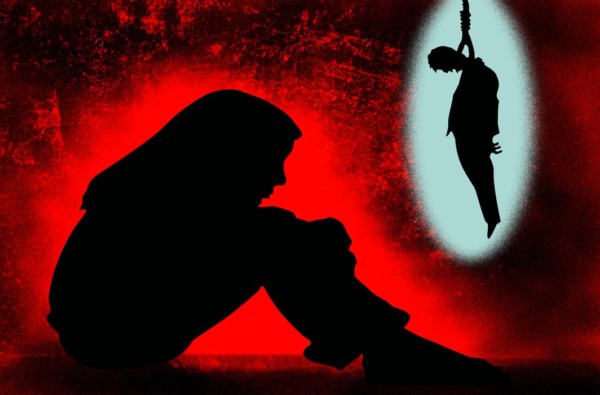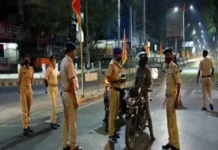Prabhat Kumar, an advisor for child protection with a national NGO, has an interesting anecdote to share about his years of interviewing street children. When you ask an ordinary child what hour/time he fears the most, he answers ‘night time.’ When you ask a child living on the streets the same question, he will tell you ‘day time.’ That’s when the police is active.
The heartbreaking irony of a child fearing his protector, brushes off our insular world like water off a duck’s back.
We, who hesitate to make eye-contact with children selling balloons at traffic signals, lest we have to part with ten rupees for a product we don’t want.
We, who jerk our coat sleeves impatiently away from the grasp of a wheedling child selling ball-point pens by the dozen.
No Direction Home
As a horrified nation debates the suitable punishment for child rapists, it slips our collective conscience that to end child abuse, we must address some of the core reasons for their vulnerability – power, poverty and homelessness. All of these factors overlap to make a specific group of children the most vulnerable to violent sexual crimes. Children whose disappearance won’t trigger tweets and Facebook campaigns to track them down, children who end up being statistics for the nation’s crime indices.
Kumar, who works with the NGO ‘Save the Children,’ has seen all forms of abuse perpetrated against children who do not live with caregivers, particularly the homeless. It makes them vulnerable to sexual predators on the prowl when parents, usually daily wagers and beggars, are away at work.
In a five-city census conducted in 2016, the NGO found out that there are almost no policies, laws, programmes and budgetary allocations in India targeted specifically at street children. The study found that street children are covered under the ambit of interventions aimed at broader groups of children.
“The homeless are a vulnerable group of people. Exposure to sexual attacks is much higher in their case,” Kumar says. Most crimes against children happen when power and poverty overlap. Traditional gender roles play an equally important part in patriarchal silencing of voices.
He adds: The way gender orientation is done also plays a big role. When a crime is committed against a girl, the family is unlikely to raise their voice.
Barely 3% Conviction Rate Under POCSO in 2016
The Indian government on Saturday, 21 April, brought in an ordinance to amend the existing criminal law to allow death sentence for convicted rapists of girls under the age of 12, and to increase the ambit of punishment for rapists of girls under 16. The Protection of Children from Sexual Offences Act (POCSO) is a gender neutral law that requires the mandatory reporting of sexual crimes against children.
During the course of the census in Lucknow, Mughalsarai, Hyderabad, Patna and Kolkata-Howrah, the NGO found that children who have been abused refused to report the violations as mandated by the POCSO Act because most of the crimes had been committed by someone in their family or in close proximity.
The National Crime Records Bureau data from 2016 shows that in 94.6 percent of the cases, the perpetrator is known to the victim, making reporting and subsequent trial extremely difficult. The conviction under the POCSO Act was barely three percent in 2016.
Their 2016 study of these out-of-school, ‘hidden’ or ‘invisible’ street children with no identity, no ‘recognition or social status that can make them count,’ often also alienated them from mainstream discussions on safety – which is happening as the nation still comes to come to terms with the gruesome details of the gang-rape and murder of an 8-year-old Muslim Bakerwal girl in Jammu and Kashmir, a girl in Gujarat and a young woman in Uttar Pradesh’s Unnao.
Death Penalty for Child Rapists – Boon or Curse?
Transit homes that operate in states such as Andhra Pradesh and Delhi offer temporary shelter to children living on the street to attend school, take a shower, eat and change. Unlike permanent childcare homes, children are free to move out of these drop-in-shelters if they so choose.
Children living on the streets are constantly eyed with suspicion by law enforcement agencies, who see them as potential criminals, says Kumar.
A study conducted by the Women and Child Development Ministry, headed at that time by Renuka Chowdhury, in 2007, found that “children on the street, children at work and children in institutional care, reported the highest incidence of sexual assault.”
However, Kumar says that there’s no consolidated data that documents sexual abuse of homeless children. The government tightened rape laws after the December 2012 gang-rape in Delhi. However, women and children continued to get raped.
Child rights activists remain divided over whether the death penalty is the sure-fix for such cases, or will it make reporting of rape more difficult and put a rape survivor in mortal danger.
A Dystopic Present – And Future
I took my five-year-old son to an anti-rape protest last week. He understood little of the speeches by eminent personalities. But he was transfixed by a group of little girls his age, camping out on the streets in the sweltering heat holding placards with slogans on them. I could imagine his little mind trying to process the information that there are beasts out there hurting children his age.
How dark and menacing this new world must seem to him, where other kids like him aren’t automatically protected by their privilege.
Unless we press the government to address the root cause of vulnerability of children to sexual attacks, force the states to promulgate policies targeted around alleviation of poverty, get uncounted children labouring on the streets back to school, just giving rapists the death penalty will not fix a broken system. #KhabarLive







